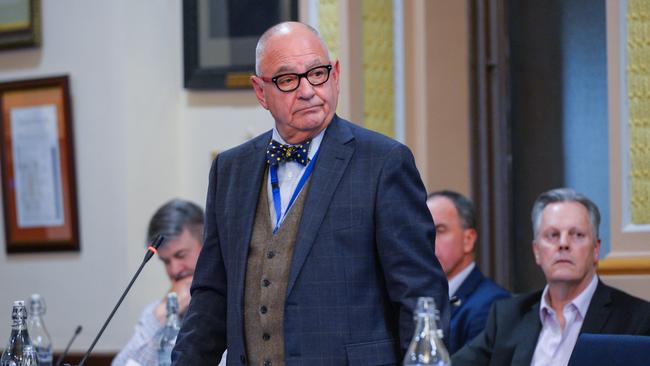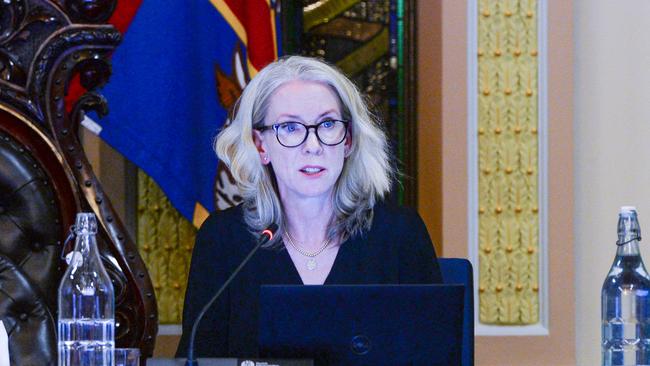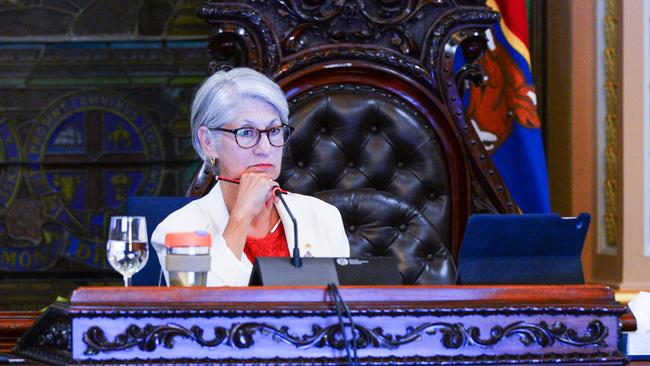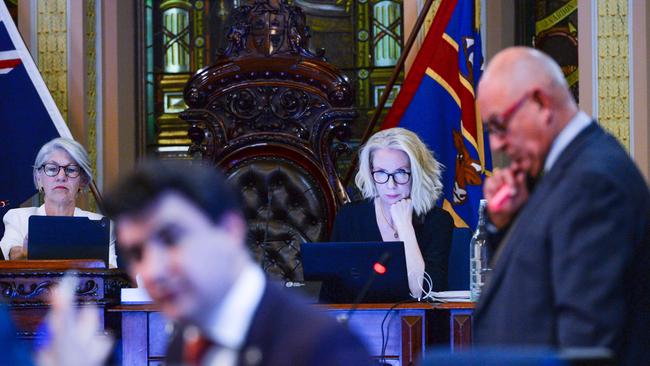Toxic culture: Adelaide City Council labelled ‘dysfunctional, frustrating and aggressive’ in report
Adelaide City Council has been labelled as “dysfunctional, frustrating and aggressive” in a previously confidential report – which also names a councillor as the individual behind its toxic culture problems.
City
Don't miss out on the headlines from City. Followed categories will be added to My News.
Adelaide City Council is “dysfunctional, frustrating and aggressive, with a highly adversarial culture and style”, a previously confidential report has found.
North Adelaide ward councillor Phillip Martin has been named in the report into the council’s toxic culture as the individual allegedly responsible for causing most of its problems.
His close ally, long-serving councillor Anne Moran, also has been criticised for sending emails to other councillors, staff and the media which repeatedly have upset staff.
Elected members voted on Wednesday night to release the report by Adelaide law firm EMA Legal during a three-hour meeting closed to the public.
The 20-page document is highly critical of the council’s culture, which elected members and staff have described as “factionalised”.
“The environment in which council members are being called to work for the benefit of the community has deteriorated to the point where every member has acknowledged a level of dysfunction and the need for things to improve,” the report said.


The report was compiled from a confidential survey of staff and elected members conducted last year by EMA Legal, while the council was being managed by former chief executive Mark Goldstone.
Staff and councillors told investigator Kaye Smith they had “tolerated conduct and behaviours that had, at times, been very challenging”.
Ms Smith’s report said staff had reported being concerned that “the behaviour of council members toward each other, in and out of the chamber, is not only embarrassing and against the interests of the organisation as a capital city council but also impacts the broader staff group”.
Ms Smith said the poor conduct of a “minority” of councillors was “taking a toll upon the wellbeing of council members just as with staff”.
“It is apparent that behaviours in and out of the chamber have been adversely impacting members for some time,” her report said.
“Staff also reported it increasingly difficult to work effectively under these conditions.”
Ms Smith said staff were feeling “undervalued and embarrassed” by “repetitive and strong questioning” by a minority of elected members.
Cr Martin was named as the “offender, in particular, in the manner and form of his questioning of staff”.
“His style of questioning was described often as a tactic to ‘trap’ staff, as an interrogation or a personal debate with staff,” her report said.
“Staff were concerned with dealing with some council members which sometimes amounted to personal questioning and debate by the member.”
Ms Smith said there was a “general sense of fatigue” caused by “repetitive behaviour regarded as bullying or borderline bullying by a minority of council members towards staff”.
“Staff reported sleeplessness, self-doubt, second guessing, struggling to keep up with requests demanded by council members through repetitive questions on notice, public ridicule, anxiety, distrust of certain elected members, unnecessary and additional workloads, burnt out and being set up to fail,” her report said.


Ms Smith said staff believed councillors, Lord Mayor Sandy Verschoor and Mr Goldstone “were looking past poor behaviour” by Cr Martin and other elected members.
“This added to feelings of being unsupported, of frustration and helplessness,” her report said.
“There was a perception that council members would not change and a general view that tolerating challenging behaviour was seen as, or expected to be, ‘part of the job’.”
Ms Smith said frequent emails sent by Cr Moran to other councillors, staff and the media had added to the workplace stress.
“Of particular and further concern to staff was the volume of email traffic and tone of email communications between council members,” her report said.
“Members acknowledged the inappropriateness of email traffic, which frequently happened and its lack of connection to council business on many occasions.
“Staff considered that exposure to those communications negatively impacted their own wellbeing and that of their colleagues.”
In a statement, Cr Martin said it was “apparent” from the report that some council staff had been “adversely impacted by their interactions with elected members”.
“If I have played any role in this, I apologise,” Cr Martin said.
“It was never my intention to bully or harass any member of council staff.
“I have only ever had the interests of the ratepayers of the City of Adelaide at heart, noting the enormous structural and financial problems we face.”
Cr Moran said she had stopped sending emails when she was instructed to do so by acting chief executive Clare Mockler.
Cr Moran said she, Cr Hyde and Cr Martin were the only councillors “who ask the hard questions”.
“This report is from a flawed process, there has been no procedural fairness,” Cr Moran said.
“It is an outrageous attempt at character assassination.”


Ms Mockler said she had acted on the report’s recommendations soon after taking up the position as acting chief executive when Mr Goldstone went on sick leave in January.
“I took immediate action to ensure the work health safety and wellbeing for employees and assist in the immediate improvement to culture,” Ms Mockler said.
“With this information now being made public, I look forward to council members and employees working productively together to deliver for and on behalf of our community.”
Ms Verschoor said she and Ms Mockler had made it their “number one priority to ensure the health, safety and wellbeing of our employees”.
“What concerns me most is the impact the behaviour of a minority of council members is having on employees,” Ms Verschoor said.
“Employees should not feel embarrassed, harassed or bullied in any shape or form.
“They should feel proud of all the work they do for our city and the community.”





